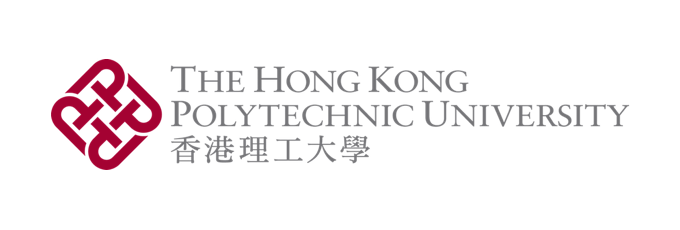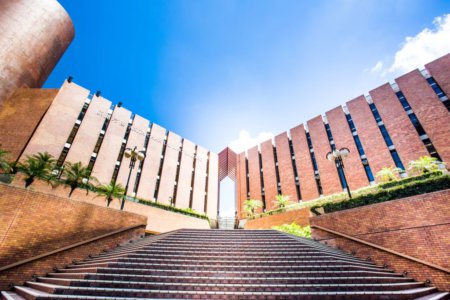With the rise of China, the weight of the world’s economy is shifting from West to East. By some estimates, Asia could make up more than half of global output by the middle of the century. In light of this, having some competency in the core languages of the world – including Chinese and English – will not only be an asset, but a basic requirement for global business in years to come.
At the same time, employers are increasingly looking for candidates with practical, transferable skills and work experience. A strictly formal academic education doesn’t cut it in today’s complex and fast-paced business environment. Employers want to see if you can lead, think critically, communicate effectively, and thrive in a digital, interconnected economy. They prefer hands-on work experience – even if it’s just an internship or work placement – over just paper qualifications, which are rarely an accurate reflection of a candidate’s abilities in a real-world working environment.
So what do universities do about this? Many of them struggle to adapt to this new reality, often doubling down on theory-heavy curriculums. Fortunately, some universities, such as The Hong Kong Polytechnic University, have bucked that trend and taken the initiative to pair multilingual education with practical skills and work experience. Through the university’s prestigious Faculty of Humanities, students can take a variety of courses in Chinese, English and other languages, learn practical skills for a 21st century globalized economy, and gain industry experience through strategic work placements.

Image courtesy of PolyU’s Faculty of Humanities
Languages are at the core of the PolyU’s Faculty of Humanities. Through various programmes, students may take up Mandarin, Cantonese, English, Japanese, Korean, Spanish and/or Portuguese. While the faculty’s focus is on Chinese and English, the diversity of language courses reflects the university’s commitment to multilingualism and multiculturalism. All programmes are incredibly flexible too, with a wealth of electives and minors – for example, undergraduates may opt to learn Chinese language and culture, Japanese or European studies as electives or as a minor.
This flexibility extends to PolyU’s unique work placement programme – Work-Integrated Education (WIE) – which gives students the opportunity to pursue training in Hong Kong, the Chinese mainland, or overseas. They may propose a preferred employer, or allow PolyU to arrange a placement. Either way, students gain valuable, industry-relevant insights and skills from their experience in addition to sharpening their social skills and building their confidence.

Students from the Faculty of Humanities completing WIE in Australia as English teachers (left) and London as interpreters and event assistants (right). Image courtesy of PolyU’s Faculty of Humanities
PolyU’s excellent relations with industry and vast network of contacts ensure that students are placed in prestigious organizations and in rewarding situations that fit their interests and abilities. For example, a few PolyU students travelled to London to serve as interpreters and event assistants during the world-famous London Fashion Weekend. They participated in Mulberry factory visits and exclusive retail store tours by the group CEOs at Top Shop and Karen Millen, and attended a fashion show.
From professional competence in English, translation skills to computer literacy, industry relevance is of cardinal value in PolyU’s educational philosophy. Courses provide education in everything from technical and web-based writing to advertising and public relations messaging. And broader subjects – like those on English, Chinese and European societies – provide incredibly useful cultural context to different business environments. Ultimately, students emerge as well-rounded individuals capable of adapting to a variety of audiences, situations and even countries – in other words, a truly global citizen.
Indeed, PolyU fully recognizes that today’s challenges and problems often cross borders. So it provides students with the language skills to gather and understand information, the critical thinking skills to analyse situations and draft plans, the technical know-how to implement those plans, and the work experience to establish credibility and build contacts. It’s a holistic package that ties together all the ingredients of professional success.
From undergraduate to doctoral, PolyU’s Faculty of Humanities offers a host of degree programmes that reflect this academic philosophy.
First and foremost is the faculty’s Broad Discipline of Language, Culture and Communication programme. In the first year, students take a series of core subjects before branching out in the second year and beyond for the BA (Hons) in Chinese and Bilingual Studies (BACBS), or the BA (Hons) in English Studies for the Professions (BAESP), or both (a double major). Core ‘broadening’ subjects run the gamut from history and human development to science and technology.

Image courtesy of PolyU’s Faculty of Humanities
With language (Chinese and English) at the center of the programme, graduates are well-positioned to work as bilingual corporate representatives and negotiators, translators, journalists, public relations practitioners, sales and marketing personnel, tourism executive and guides, and more. Students can look forward to quality education because PolyU’s Faculty of Humanities has been ranked 41st in linguistics by the QS World University Rankings by Subject 2016.
Advanced learners may be happy to learn that PolyU offers PhD study that’s covered by the very generous Hong Kong PhD Fellowship Scheme. Funded by the Research Grants Council (RGC) of Hong Kong, the fellowship provides a monthly stipend of HK$20,000 (approximately US$2,600), Conference and Research related travel allowance of HK$10,000 (approximately US$1,300) per year, for awardees for a maximum period of three years and associated money of HK$20,000 (approximately US$2,600) to support research study (details of the Scheme are subject to revision).
Additionally, PolyU will award those with a four-year normal study period the same provision during their fourth year of study and award each PhD Fellowship awardee with a tuition scholarship covering the entire normal study period. Hall accommodation in the first year of study will also be guaranteed. Possible areas of research depend on the relevant department, but include Linguistics and Language Studies, Chinese History and Culture, Translation and Area Studies.
Others may want to opt for the faculty’s professional doctoral programme, namely the Doctor of Applied Language Sciences (DALS). Aiming to help nurture future leaders in language-related professions, the DALS programme exposes students to the latest developments in the language sciences and gives them an advanced understanding of the inextricable link between theory and practice.

Image courtesy of PolyU’s Faculty of Humanities
The faculty also offers postgraduate study in Chinese literature, history, philosophy, religion and art via the Department of Chinese Culture. Students get an in-depth look into the foundations of modern Chinese society through an intellectual journey that reaches back to Imperial China. Having received rigorous academic training, students can deepen their understanding of Chinese consumers, and influential stakeholders and powerbrokers by looking to their cultural heritage. In addition, the faculty offers a wide range of postgraduate programmes encompassing areas such as speech therapy, bilingual corporate communication, English language teaching, English studies for the professions, etc.
All in all, The Hong Kong Polytechnic University’s Faculty of Humanities has some of the most practical, well-rounded and flexible programmes in the world. They’re exceptionally relevant, whether you intend to go into business or government or journalism, or something completely different. With a wonderfully progressive philosophy, PolyU is one of the few institutions which rightfully recognize that if you wish to succeed in the world, you need to first speak its language.

Image courtesy of PolyU’s Faculty of Humanities
The article is sponsored by The Hong Kong Polytechnic University (PolyU). Tracing its origins back to 1937 and located in the heart of Kowloon, the university is well-regarded around the world for the strong academic performance and hands-on work training programmes of its Faculty of Humanities. The university as a whole was ranked 27th in Asia by the QS World University Rankings 2015. PolyU’s location in the vibrant city of Hong Kong – a glittering, cosmopolitan gateway to the Chinese mainland – offers students the exciting possibilities of not just travelling and finding work within China, but across the diverse landscape of Asia.
Liked this? Then you’ll love these…
Changing the world through the humanities
Soft skills build better leaders: Why more employers are looking for humanities graduates


















